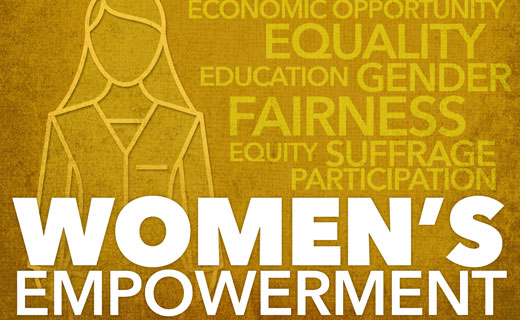
Women economic empowerment is the best way to achieve other genderrelated goals such as equality, poverty eradication, and inclusive economic growth. That is why scholars and development institutions see economic empowerment as a prerequisite for realizing gender equity.
Various studies revealed that women’s lower status, particularly in developing countries, is attributable to poor access to finance and resources, which are basic instruments of economic empowerment to give women a sense of independence.
Dr. Alemayehu Debebe, Researcher at Ethiopian Civil Service University advises that capacity building initiatives need to give more emphasis to women economic empowerment. Women are still marginalized in terms of social, political and economic representation and the best way to improve the situation is through empowering them economically, the research tells The Ethiopian Herald.
The Ethiopian government launched “Ethiopian women Development and Change Package” in 2015 to deal with the undeniable and undesirable realities of women’s lives. “But the package has not been that much successful,” he says. Yet, as to him, there are encouraging signs on the economic side, especially in protecting and promoting women’s economic rights and saving culture.
“Nowadays, women have started to prove their worth in defiance of the stereotype regarding running a successful business. The contribution of women to economic growth has somehow become visible than ever before.” In light of this fact, financial institutions such as banks are also specifically targeting women. The notable ones are Commercial Bank of Ethiopia and Enat Bank SC.
Commercial Bank of Ethiopia has prepared a special saving account with a higher interest rate to develop a saving culture among women. The program allowed women to have better market linkage with companies that supply various goods and services through the point of sale purchase machines, without the need to possess money. Belehu Takele, Corporate Communication Director at CBE revealed to The Ethiopian Herald that currently there are 3,016,394 women customers across the country who have been benefiting from the special account.
The total deposit of women savings has also reached more than 32 billion birr (32,478,815,413 birr). Enat Bank S.C, which is established with dual objectives of providing conventional commercial banking services, and with special emphasis on the banking needs of women has also come up with various schemes to improve women’s access to finance.
For instance, the “Enat Collateral Saving Account” is an account where willing national and international organizations, private and governmental as well as concerned individuals, who have same vision as Enat Bank to reach “the missing middles”, deposit a certain amount of money that will be blocked for a period of time; and which the Bank uses as a guarantee for women entrepreneurs.
The “Enat Loan to women” against cash collateral deposited by willing individuals is a loan for women-owned Small and Micro Enterprises, for whom the lack of collateral is a bottleneck to the growth of their business.
Though not expanded at the desired level, various cases demonstrated that saving and credit cooperatives in rural areas have a positive impact in improving women economic empowerment and hence gender equity. But a lot remains to be done in improving the inconsistent capacity building interventions regarding business and financial management, says Alemayehu.
Women economic empowerment cannot be attained through the provision of financial services alone, he states. “Even to the extent that women lack business skill and financial management practices, they make use of loans for their household consumption rather than properly investing in the intended purpose of improving their economic standing”. This requires stakeholder to organize continuous training schemes. The other solution, as to the researcher, is creating market linkage.
The problem may be better addressed through the means of arranging businesses of varying nature to be located in a given location in a way that women become companionable to each other. In this kind of arrangement, one business entity may supply inputs to the other and there could be a possibility for effective business transactions. Dr Alemayehu notes that sustainable capacity building is crucial for the empowerment of women.
The Ethiopian Herald, February 28/2019
BY HAILE DEMEKE





